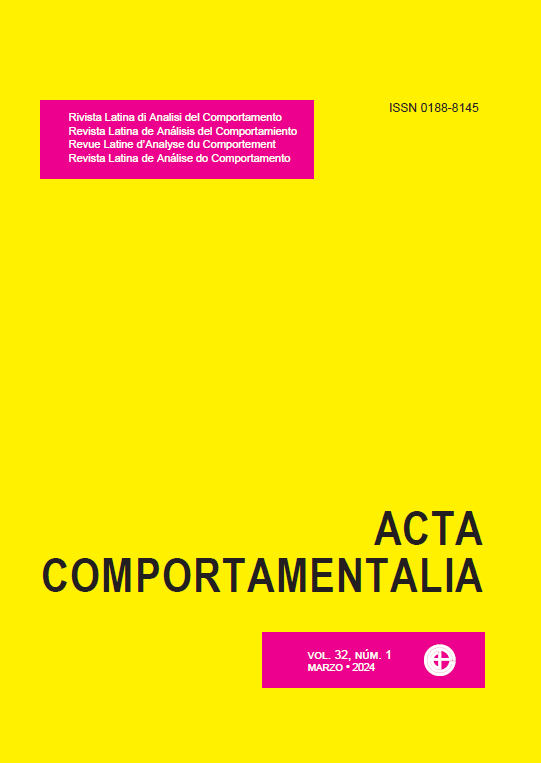Critical Observations on the Notion of Competence in the Theory of Behavior
Main Article Content
Abstract
The purpose of this paper is to delve into the concept of competence proposed in the Theory of Behavior and the Theory of Psychology based on the conclusions reached in a first review that covered 30 years, from 1981 to 2011 (cf. Ibáñez & De la Sancha, 2013). The critical observations are due to an attempt to reorder the concept of competence and other related concepts in accordance with common sense practices, to avoid counterintuitive conclusions. Four relevant aspects of the notion of competence are mainly discussed: 1) skill as a fundamental component of competence; 2) skill is not sufficient to identify or define a competency; 3) the concept of competence becomes relevant in performance evaluation situations; 4) implications of the observations on the concept of “intelligent” behavior. It is concluded that specifying the concepts of skill and competence allows us to linguistically abstract the characteristics of interest from the phenomena that are observed, identifying those that are necessary and sufficient to conceive them epistemologically as such. Doing this is key for empirical research, as it is the fundamental guide for the theoretical interpretation of its results, and even for the planning of strategies aimed at solving social problems.
Article Details
Citas en Dimensions Service

<a rel="license" href="http://creativecommons.org/licenses/by-nc-sa/4.0/"><img alt="Licencia de Creative Commons" style="border-width:0" src="https://i.creativecommons.org/l/by-nc-sa/4.0/88x31.png" /></a><br />Este obra está bajo una <a rel="license" href="http://creativecommons.org/licenses/by-nc-sa/4.0/">licencia de Creative Commons Reconocimiento-NoComercial-CompartirIgual 4.0 Internacional</a>.
